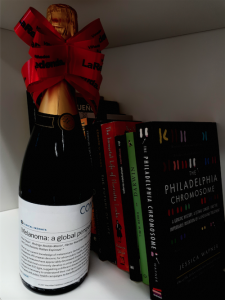Our year in review
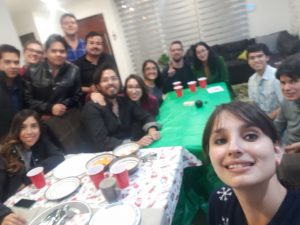
A bit of a blurry picture of the CG&Bio lab + friends at the Christmas dinner
2018 was a great year for the CG&Bio lab! Overall, we:
-Celebrated the graduation of our first BSc student (Congratulations, Isaac!)
-Were joined by Diego, Paty, Estef and Kevin, who have been working on both computational and wet lab projects. Welcome!
-Published 7 papers/reviews/preprints either directed by our lab or in collaboration.
-Obtained one Fellowship (Newton Advanced Fellowship from the Academy of Medical Sciences, UK), two novel grant awards (Medical Research Council [UK] and UC Mexus [US/Mexico]), one Scholar Award (William Guy Forbeck Research Foundation, USA) and the renovation of our University grant (PAPIIT UNAM)
-Established novel national and international collaborations
-Gave several talks at both national and international events and attended international courses
Here’s to a successful and happy 2019. Bring it on!


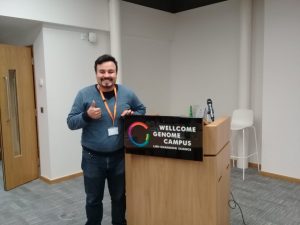
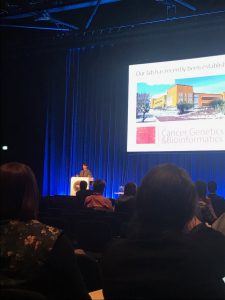

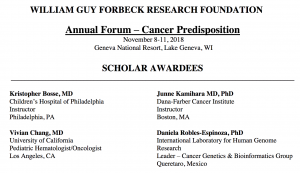
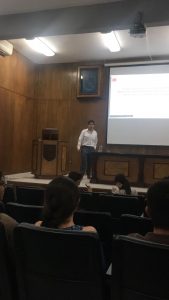 Last Friday, Isaac successfully defended his B.Sc. thesis (with honours!), entitled “Functional in silico analysis of SNPs influencing melanoma development and telomere length”. In it, he deploys a series of computational analyses (including genotype imputation, linkage disequilibrium calculations, epigenome state imputation and other functional predictions) in order to prioritise candidate variants underlying increased melanoma risk and telomere length. Based on his work, we are now planning some exciting experiments to test these functional hypotheses.
Last Friday, Isaac successfully defended his B.Sc. thesis (with honours!), entitled “Functional in silico analysis of SNPs influencing melanoma development and telomere length”. In it, he deploys a series of computational analyses (including genotype imputation, linkage disequilibrium calculations, epigenome state imputation and other functional predictions) in order to prioritise candidate variants underlying increased melanoma risk and telomere length. Based on his work, we are now planning some exciting experiments to test these functional hypotheses.